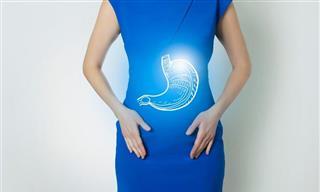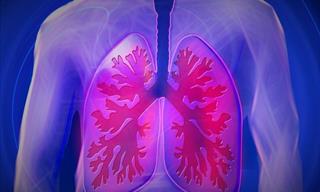1. Steam inhalation
Inhaling warm, moisture-rich air is a great way of clearing the sinuses and opening up the airways. All you need to do is boil some water, pour it into a large bowl and breathe in the steam. Place a hot towel over your head to trap in more moisture, and try adding a few drops of menthol or eucalyptus oil to the water to make the steam more powerful. You can also benefit from a sauna room or hot shower to loosen the congestion if needed.
2. Hot drinks
Hot drinks are excellent for loosening up congestion in the airways. Add a teaspoon of honey to a hot drink to reap its anti-inflammatory and antimicrobial benefits. Eating just one tablespoon of honey twice a day can also help to relieve throat congestion. Peppermint and other menthol teas also work well. Try experimenting with these different things to see which works best for you.
3. Breathing exercises
Wheezing caused by Chronic Obstructive Pulmonary Disease, bronchitis or allergies can be eased by doing breathing exercises. These include deep, regular inhalations and exhalations. A doctor or respiratory therapist can assist you in finding the most effective breathing techniques for you.
4. Humidifiers
There’s no denying that wheezing can get worse during the winter months, so consider investing in a humidifier. This will help to loosen congestion in the airways and reduce the severity of wheezing. You can even try adding peppermint or other oils into its water, however, you should check the instructions before adding anything other than water.
5. Air filters
Polluted air can contribute significantly to wheezing, as can allergens. A home air filter can reduce the presence of irritants that can cause wheezing and other breathing problems.
6. Identifying and removing triggers
Certain triggers, such as stress or allergens, can make chronic illnesses and asthma worse, so identifying and being in control of them is a great idea. For instance, individuals with chronic respiratory conditions might take allergy medication and avoid allergy triggers.
7. Allergy medications
Decongestants, corticosteroid tablets, and antihistamines can all help with keeping allergies under control. Nasal sprays can also help to relieve a tight chest, congestion, and inflammation. If you suffer from more severe allergies, note that you may require prescription allergy medication.
8. Allergy immunotherapy
Immunotherapy involves retraining the immune system to refrain from reacting to allergens. Allergy shots are the most common form of immunotherapy, and the technique can also be helpful for people with other chronic conditions such as COPD.
9. Bronchodilators

This type of medication is designed to relax the lungs and prevent the airways from narrowing, thus helping those with wheezing caused by COPD or asthma. Bronchodilators come in two forms, namely short-acting and long-acting. The former can halt an asthma or COPD attack, whereas the latter can relax the airways over the long-term.
10. Other medications
Wheezing caused by an underlying illness is often treatable with medication. Epinephrine or corticosteroids, for instance, can help individuals that experience wheezing due to a severe allergic reaction. Always discuss medications with your doctor prior to taking them, and also inform yourself on how various medications interact with one another.
When you should see a doctor
Diagnosing the cause of wheezing based on the symptoms alone can be quite difficult, so an individual should see a doctor if their wheezing is cause for concern. A trip to the emergency room is in order if:
• An individual struggles with their breathing
• Their wheezing comes on suddenly
• It’s accompanied by other symptoms, such as chest pain
• If the individual is showing signs of anaphylaxis
Content source
Images by Deposit Photos.
 Go to BabaMail
Go to BabaMail





























